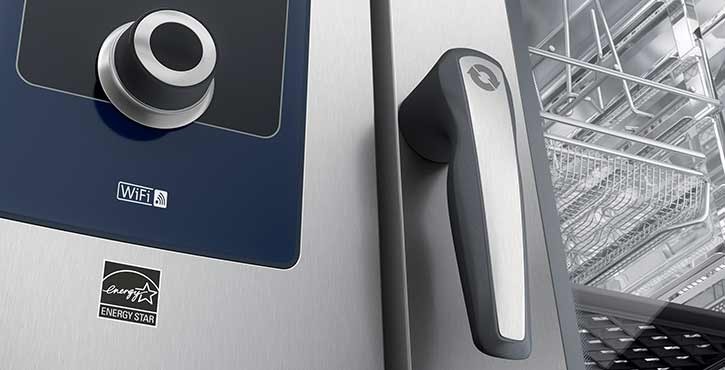
According to ENGIE Impact, almost 80% of annual energy costs in the hospitality industry are due to energy-inefficient food preparation and storage. Therefore updating the kitchen equipment can make perfect sense.
The ENERGY STAR certification is a good indicator here. According to the EPA, combi-steamers that have been awarded the new ENERGY STAR are on average 30% more efficient than standard models.
Read more about how the RATIONAL iCombi Pro can help reduce the ecological footprint.
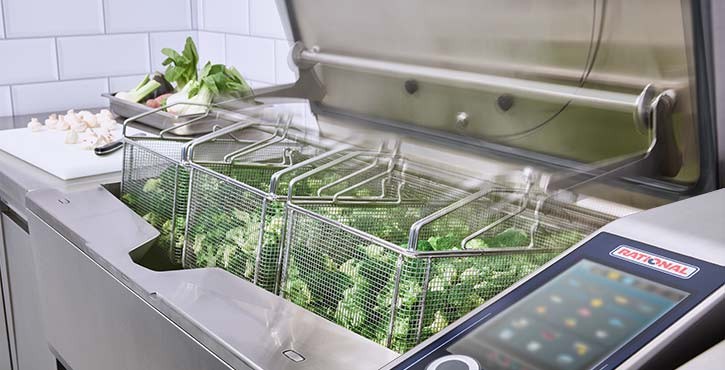
How does it look when you compare the iVario with conventional gas cooking appliances? To answer this question, the iVario product team conducted a 3-month study in a school kitchen in France, producing 750 meals per day. The results speak for themselves.

Saving energy is beneficial for the environment. It saves money. So it’s a good thing. However, where do you start? Perhaps with these 10 tips.
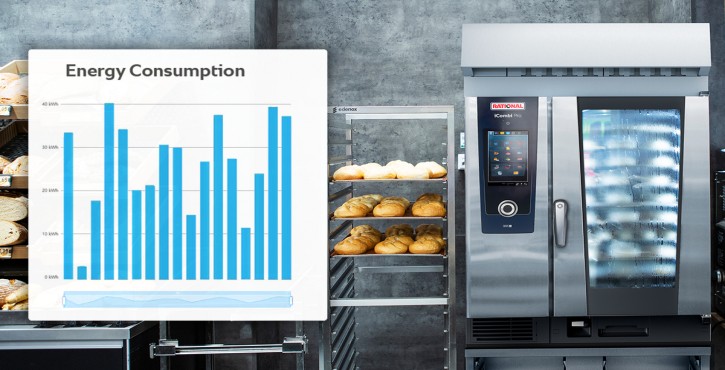
Logging, monitoring and reducing energy usage is now very easy with the help of the new digital energy usage display in ConnectedCooking. Simply connect the iCombi Pro or SelfCookingCenter to the network and on the dashboard view energy data, and potential savings. Start reducing energy costs and protecting the environment.
The NHS in the United Kingdom is constantly striving to reduce its carbon footprint and improve efficiency. As part of the annual NHS Sustainability Awards, the Royal United Hospitals in Bath also received an award in the "Energy" category in 2017. The fact that the Royal United Hospitals Trust in Bath was able to accept the award was in no small part thanks to the RATIONAL combi-steamers that they use.
See for yourself how impressive energy savings are achieved and how Philip Watson, Head of Facilities, classifies these savings.
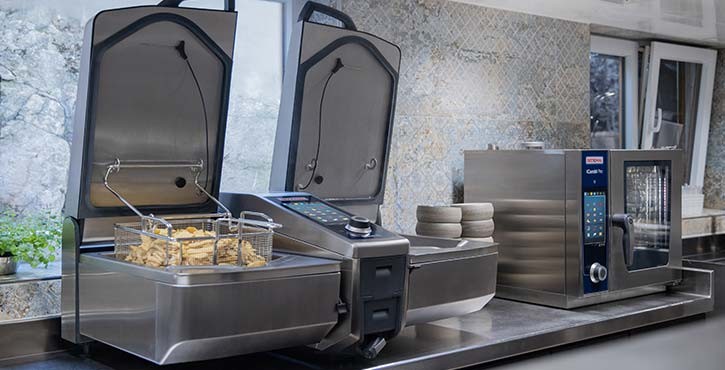
The iVario pays off and unleashes its full power in day-to-day kitchen operations. When it comes to energy efficiency compared to other appliances, the iVario clearly sets new standards and saves money. Up to 4 times as fast and with up to 40% less energy. Find out more about the direct comparison made according to the official DIN 18873 standard.
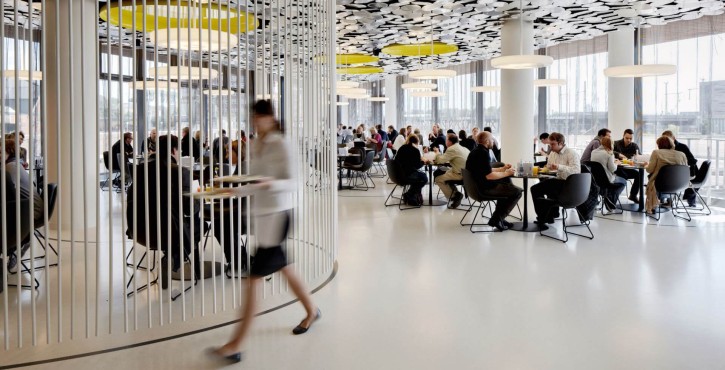
Industry catering is undergoing change. Energy prices are universally high, customers are demanding and the competition in the form of supermarkets or restaurants offering a lunch service is only a street away. What to do? There’s another way.